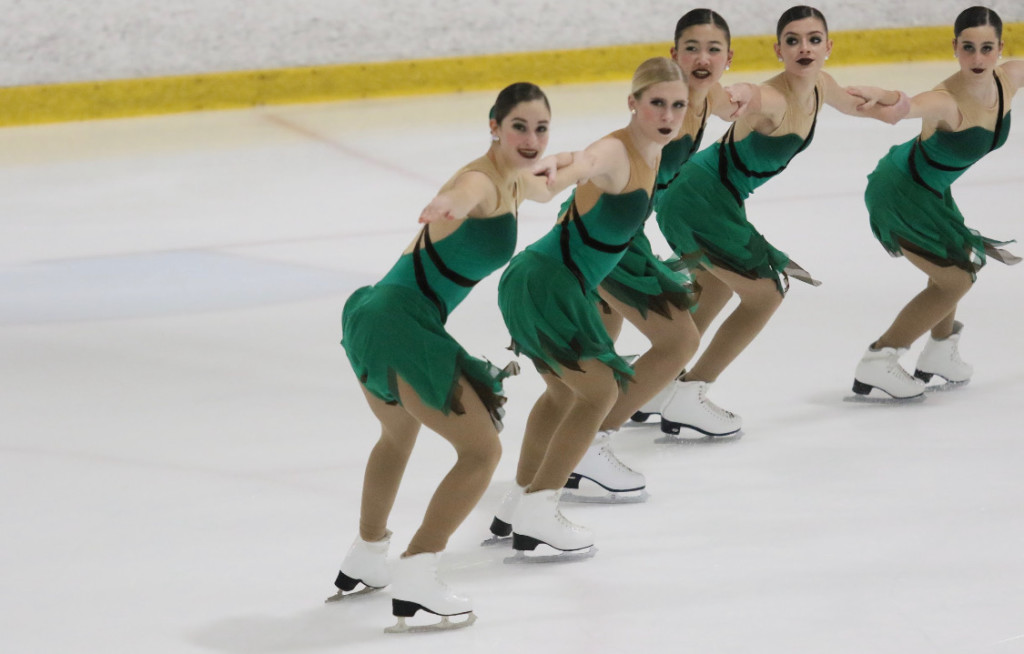In third grade, junior Alex Strizek’s mother signed her up for synchronized skating lessons. Now, eight years later, she is one of the oldest girls on D.C. Edge’s novice skating team and aspires to compete for Team U.S.A., despite the sacrifices she has to make because of skating and the potential risks to her health.
Strizek practices skating five days a week on her own and two days with her team. They attend competitions spanning anywhere from two to four days at a time during the season, which causes her to miss an excessive amount of school.
“Basically every skater I know has had an ‘is this really worth it’ moment where you [realize] that [you] are giving up so much,” Strizek said. “I’ve been doing this since I was 8 years old, and I’ve been chronically absent from school ever since.”
Not only does Strizek have to be absent from school, she also has to compromise going out with friends and doing other activities to prevent potentially injuring herself before a competition.
“[Skating] definitely alters the way you live your life in a very big way,” Strizek said. “It has prevented me from doing a lot of the things I’ve wanted to do [and] because of that, there have been a couple of times where I have been like, ‘is this something I want to keep doing if it’s going to put so many limitations on me,’ but then I find other stuff to do with my skating friends who are in the same boat as me.”
Strizek said though synchronized skating is a major part of her life, others do not entirely understand the danger it entails.
“A lot of what we are doing is very high-risk,” Strizek said. “To compete on a higher level, you have to be moving fast and doing complicated things, and in doing that, there’s definitely a degree of difficulty that a lot of people don’t recognize because it is very challenging [and] a lot of things could go very, very wrong.”
Strizek said she has numerous friends who have had multiple concussions in the past who are on the verge of quitting because of the strain on their well-being.
“One of the biggest reasons that people don’t continue skating in college is because it takes a physical toll on you,” Strizek said. “Almost every skater I know has serious knee problems because you’re using your knees [for] everything you do.”
Whenever she questions whether she wants to continue skating, Strizek said she remembers how much she trusts her team, which motivates her to continue.
“If you’re not trusting, you’re putting the team in danger because you’re not doing what needs to be done,” Strizek said. “Once [I] feel comfortable with the team again and we grow as a team together, I’ve always come back to skating.”
Regardless of the health concerns and the sacrifices she has to make, Strizek said skating has bonded her to the people on her team, both on and off of the ice.
“We do lots of things that are not involved in skating,” Strizek said. “I honestly don’t know what I would do without them […] They are people I know I am still going to be friends with after the [season] ends.”
2020-03-11

